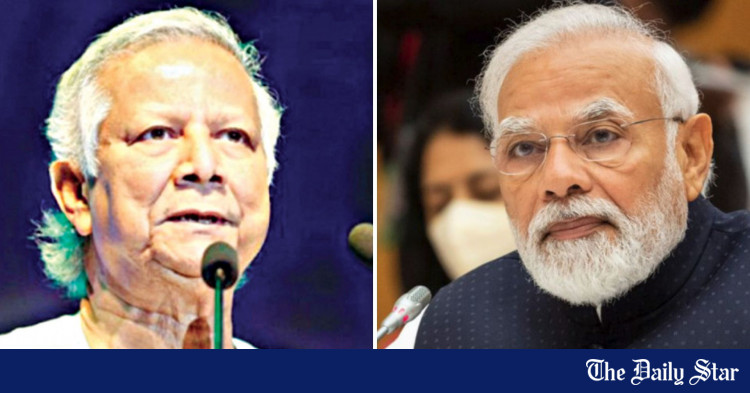Saif
Senior Member
- Joined
- Jan 24, 2024
- Messages
- 17,104
- Likes
- 8,163
- Nation

- Residence

- Axis Group

This monumental stupid should know that Bangladesh, Pakistan, and China also have the right to simultaneously invade India for its atrocities against Muslims in Gujarat and Kashmir 

 thefinancialexpress.com.bd
thefinancialexpress.com.bd
Congress legislator urges Modi to consider military action in Bangladesh over Hindu minority atrocities
FE ONLINE DESK
Published :
Aug 14, 2024 22:38
Updated :
Aug 14, 2024 22:38

Karnataka Congress MLA Rizwan Arshad
Expressing concern over the political turmoil and reported atrocities against Hindu minorities in Bangladesh, a Karnataka Congress legislator on Wednesday urged Prime Minister Narendra Modi not to hesitate to take decisive military action like former PM late Indira Gandhi did in 1971, reports economictimes.indiatimes.com.
Rizwan Arshad, who represents Shivajinagar Assembly constituency in Bengaluru, in a letter to Modi, also appealed to him to take "decisive action" to not only address concerns of minorities in Bangladesh but also in India, who have been under "constant attack both economically and socially by the right wing."
"I write to you today as a concerned citizen of India deeply distressed by the recent reports and videos circulating on social media, highlighting the ongoing political turmoil in Bangladesh and the atrocities being reported against Hindu minorities in the region," Arshad said.
If these reports are true, given the historical and cultural ties between India and Bangladesh, it is imperative that India takes a "proactive stance" in addressing these issues, he said.
Noting that the safety and well-being of the Hindu minorities in Bangladesh should be of paramount concern, the MLA urged the Prime Minister to engage with the new Bangladeshi government to ensure that immediate and effective measures are taken to protect their rights and dignity.
"The right-wing social media influencers and handles in India have been circulating news which if true (many have been found fake too), I urge the Government of India to ascertain the authenticity of these reports/videos. If they are proven true, the Government of India should take firm action," he said.
The people of India have always stood for justice, peace, and the protection of human rights, Arshad said. "As our Prime Minister, you should not hesitate to take decisive military action like Smt. Indira Gandhi did in 1971. I request you to use your esteemed office to extend a hand of support to our Hindu brothers and sisters in Bangladesh during this critical time."
"I trust that under your leadership, India will take decisive action to not only address concerns of minorities in Bangladesh but also in India, who have been under constant attack both economically and socially by the right wing," he said, and requested him to work towards ensuring the safety and security of our Hindu brethren in Bangladesh and fellow citizens, in particular minorities of India.

Congress legislator urges Modi to consider military action in Bangladesh over Hindu minority atrocities
Expressing concern over the political turmoil and reported atrocities against Hindu minorities in Bangladesh, a Karnataka Congress legislator on Wednesday urged Prime Minister Narendra Modi not to hesitate to take decisive military action like former PM late Indira Gandhi did in 1971, reports econo
Congress legislator urges Modi to consider military action in Bangladesh over Hindu minority atrocities
FE ONLINE DESK
Published :
Aug 14, 2024 22:38
Updated :
Aug 14, 2024 22:38
Karnataka Congress MLA Rizwan Arshad
Expressing concern over the political turmoil and reported atrocities against Hindu minorities in Bangladesh, a Karnataka Congress legislator on Wednesday urged Prime Minister Narendra Modi not to hesitate to take decisive military action like former PM late Indira Gandhi did in 1971, reports economictimes.indiatimes.com.
Rizwan Arshad, who represents Shivajinagar Assembly constituency in Bengaluru, in a letter to Modi, also appealed to him to take "decisive action" to not only address concerns of minorities in Bangladesh but also in India, who have been under "constant attack both economically and socially by the right wing."
"I write to you today as a concerned citizen of India deeply distressed by the recent reports and videos circulating on social media, highlighting the ongoing political turmoil in Bangladesh and the atrocities being reported against Hindu minorities in the region," Arshad said.
If these reports are true, given the historical and cultural ties between India and Bangladesh, it is imperative that India takes a "proactive stance" in addressing these issues, he said.
Noting that the safety and well-being of the Hindu minorities in Bangladesh should be of paramount concern, the MLA urged the Prime Minister to engage with the new Bangladeshi government to ensure that immediate and effective measures are taken to protect their rights and dignity.
"The right-wing social media influencers and handles in India have been circulating news which if true (many have been found fake too), I urge the Government of India to ascertain the authenticity of these reports/videos. If they are proven true, the Government of India should take firm action," he said.
The people of India have always stood for justice, peace, and the protection of human rights, Arshad said. "As our Prime Minister, you should not hesitate to take decisive military action like Smt. Indira Gandhi did in 1971. I request you to use your esteemed office to extend a hand of support to our Hindu brothers and sisters in Bangladesh during this critical time."
"I trust that under your leadership, India will take decisive action to not only address concerns of minorities in Bangladesh but also in India, who have been under constant attack both economically and socially by the right wing," he said, and requested him to work towards ensuring the safety and security of our Hindu brethren in Bangladesh and fellow citizens, in particular minorities of India.






































